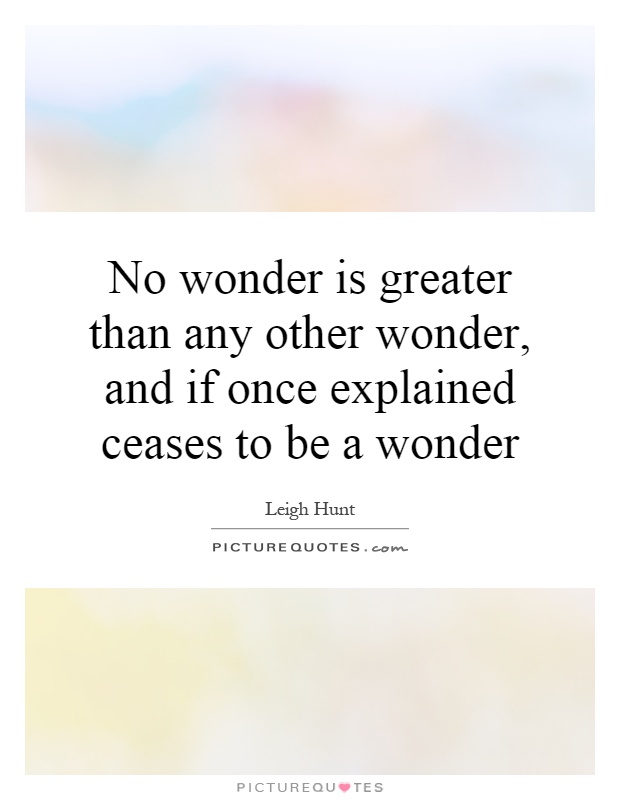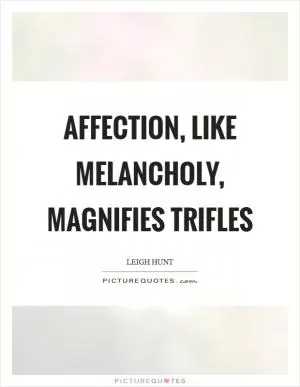No wonder is greater than any other wonder, and if once explained ceases to be a wonder

No wonder is greater than any other wonder, and if once explained ceases to be a wonder
Leigh Hunt, a prominent English critic, essayist, and poet of the 19th century, was known for his keen observations on human nature and the world around him. One of his most famous quotes, “No wonder is greater than any other wonder, and if once explained ceases to be a wonder,” reflects his belief in the endless mysteries and marvels of the world.Hunt understood that the beauty and complexity of the world lie in its ability to surprise and astonish us. He believed that every wonder, whether big or small, holds its own unique magic and significance. From the intricate patterns of a snowflake to the vastness of the universe, each wonder has the power to inspire awe and wonder in those who take the time to appreciate it.
However, Hunt also recognized the fleeting nature of wonder. Once something is explained or understood, it loses its sense of mystery and enchantment. This idea can be seen in many aspects of life, from the way we view the natural world to the way we experience art and literature.
For example, a beautiful sunset may fill us with wonder and awe, but once we understand the scientific explanation behind it – the way light is refracted through the atmosphere, creating a stunning array of colors – the wonder may fade. Similarly, a piece of music or a work of art that initially captivates us may lose its magic once we analyze its structure and meaning.
Hunt’s quote serves as a reminder to embrace the wonders of the world with a sense of curiosity and appreciation. It encourages us to marvel at the mysteries that surround us and to never take them for granted. By acknowledging the endless wonders of the world and the limitations of our understanding, we can cultivate a sense of wonder and awe that enriches our lives and deepens our connection to the world around us.












 Friendship Quotes
Friendship Quotes Love Quotes
Love Quotes Life Quotes
Life Quotes Funny Quotes
Funny Quotes Motivational Quotes
Motivational Quotes Inspirational Quotes
Inspirational Quotes